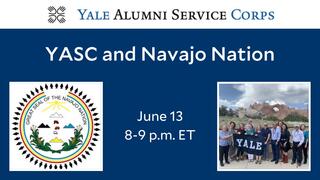The discussions were wide-ranging, important, and at times deeply personal, and they touched upon some of the most pressing issues on college campuses and in society at large: diversity, belonging, inclusion, equality, and equity.
The 2019 Yale Alumni Association Impact Conference was titled, “Advancing Diversity, Equity, and Inclusion Through Social Change.” It covered all those topics and more, with a distinguished array of alumni, thought leaders, professors, students, and parents leading and participating in a series of talks, panel discussions, and breakout sessions over the course of two days.
The event kicked off Friday evening at Hastings Hall with “Winning the Freedom to Marry: Lessons for Achieving Change,” headlined by Pulitzer prize-winning journalist Linda Greenhouse ’78 MSL and civil rights advocate and Freedom to Marry founder and president Evan Wolfson ’78. The two set the tone for the conference by discussing the importance of equality, engagement, and changing social and societal attitudes to influence legal statutes.
"The chief engine of change is conversation,” said Wolfson. “And the good news is that there are so many things that need fixing in the world, we all have many opportunities to make the world better.”
Effecting and advancing social change also infused the second day of the conference, hosted at the Yale School of Management. The day featured a mix of larger talks for the 175-plus attendees as well as separate, smaller breakout sessions to discuss the history of diversity, equity, and inclusion (DEI) in the U.S. and a series of experiential workshops ranging in topic from bystander intervention training to diversity and environmental justice.
“The one thread we saw run through the conference was the importance of really listening to each other,” said YAA Executive Director Weili Cheng ’77. “These conversations won’t always be easy, but they’re critically important, today more than ever. So have the courage to be vulnerable, to put yourself out there, because you’ll learn so much, and then you’ll have the ability to take what you’ve learned and use it to make a difference in your community.”
The panel discussions drove home this point. The first, moderated by Marta Moret ’84 MPH and featuring scholar Wendell Nii Laryea Adjetey ’15 MA, ’15 MPhil, ’18 PhD, artist Rashayla Marie Brown ’04, and SkillSmart co-founder and former Obama administration staffer Jason Green ’08 JD, was focused on inspiration – stories of how Yale alumni have made a real difference in the discussion and implementation of DEI, and why it is so critical to do so.
"Diversity, equity, and inclusion is one outcome of 400 years of bondage, racial caste, and quasi freedom,” said Adjetey, a postdoctoral fellow at the Weatherhead Center for International Affairs at Harvard. “This is not empty rhetoric. Lives have been on the line."
That sense of urgency was also on display during a powerful “Be the Change” session, which featured a panel of alumni and students telling their stories of DEI-related challenges they have faced – and how they handled daunting obstacles with great courage, determination, and compassion. As Arya Singh ’22 poignantly noted, you must lean in to difficult conversations, because by taking risks, both you and your community will benefit.
“When we talk about challenges with diversity, equity, and inclusion, we want an immediate fix,” said Singh, who spoke of her experience of navigating Yale, both physically and emotionally, in a wheelchair. “But in my experience, it’s the small acts of kindness that make a difference. Those macro changes take time, and it’s those small acts that help us get there.”
Added fellow panelist David Sanchez ’84 MA, ’84 MPhil, “Personal engagement is everything. Opening our hearts is scary, but we need to listen to reach out to each other.”














